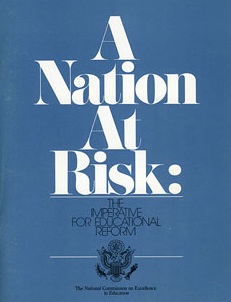A fantastic opinion piece by education reform pioneer T. Willard Fair appeared on Tallahassee.com on April 19, 2013:
There has long been a troubling attitude in our society about low-income parents.
Put bluntly, it goes like this: Poor people make poor parents.
Of course, folks in proper circles usually don’t come right out and say it, which is what made the recent comments by state Sen. David Simmons, R-Altamonte Springs, so stunning.
When asked by the media about the parent empowerment bill (Senate Bill 862, House Bill 867), Sen. Simmons responded:
“Let’s face it, the parents are the very people who haven’t been involved in their own children’s lives so as to cause the school to improve. What kind of credibility do you give to the parents in those kinds of circumstances?”
Everybody knows who he is talking about, because the bill is meant to address consistently failing schools in low-income neighborhoods.
Forget about the historic neglect of these schools.
Forget that school districts and unions have used them as out-of-sight, out-of-mind depositories for ineffective personnel.
Forget about the long history of promoting illiterate children to certain failure just to move them through the system.
Forget that many of these parents are working two minimum-wage jobs to support their children and don’t have time to form a PTA or lobby in Tallahassee.
It’s all the parents’ fault. Let’s face it.
If a school fails year after year, the judgment of those running the school should not be challenged by the parents of the children the school is failing.
The people responsible for the failure are competent, but the parents are not.
They can’t be trusted with decisions about changing school management, because they will get bamboozled into turning their school over to some nefarious profiteer. And during the process, they will squabble among themselves and create discord in the community.
So take away their power to act, and reduce them to hoping that this next time around those who have consistently failed their children will somehow get their acts together. If they don’t, then so be it. If the unions block the removal of ineffective teachers, so be it.
After all, it’s the parents’ fault. Let’s face it.
Maybe I would expect this out of union leaders, politicians beholden to their campaign contributions, education bureaucracies and parents who send their children to high-performing schools and see only that side of public education. But it disturbs me to see black legislators tacitly give their approval through their silence and their votes.
I have devoted the past 25 years to ensuring that poor minority children have access to an equal education. In this effort, I do not pledge allegiance to traditional public schools, charter schools or voucher schools.
I don’t care about the vehicle. I care about the result. And I’ve found the result is much better when parents are allowed to make choices.
Those vested in the current system attack choice. They throw out buzz words such as “privatizing education” or “corporate reformers” or “destroying public education.”
But this is what they don’t want people to know: The reason there are a growing number of charter schools, the reason for the long waiting lists, the reason why vouchers are so coveted, is because parents want them. And of course, the only intellectually honest rebuttal to that demand is that these parents don’t know what is best for their children.
Now if parents make a six-figure paycheck and can buy school choice, that is an entirely different matter.
I certainly found Sen. Simmons’ comments to be distasteful. But I do give him credit for at least having the courage and honesty to say out loud what many in the Legislature appear to be privately thinking.
T. Willard Fair is a former chairman of the Florida State Board of Education, the president and chief executive officer of the Urban League of Greater Miami Inc., and a member of the Foundation for Florida’s Future Board of Directors.













It Could Have Been My Boy
Founder and President of the Center for Education Reform reflects on the Boston tragedy in a Huffington Post piece:
The events of recent months tell us we must all do that, no matter how incorrect the social scientists believe such behavior to be. Every mother must ask herself — do I really know my child? Do I understand how he spends his time, what he needs, whether he is masking some hidden hurt? Do I know what the cause of his joy or sorrow is? Can I impact him now at 16, 18, or even 25? Am I willing to intervene to protect the other people around me, regardless of whether he’s my son or not? Mothers must take charge of the chaos our boys are creating around us.
Read the whole story here.